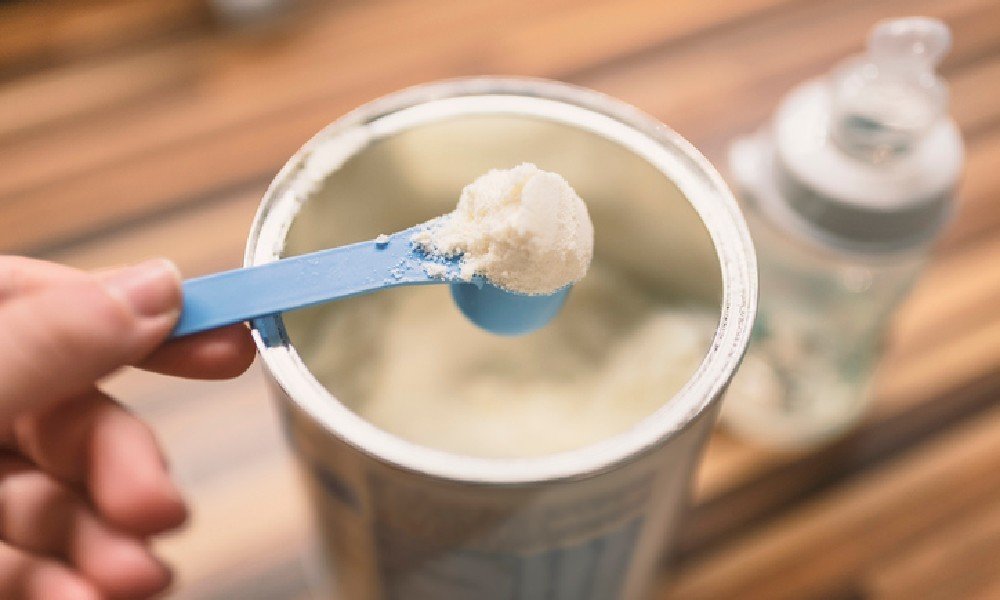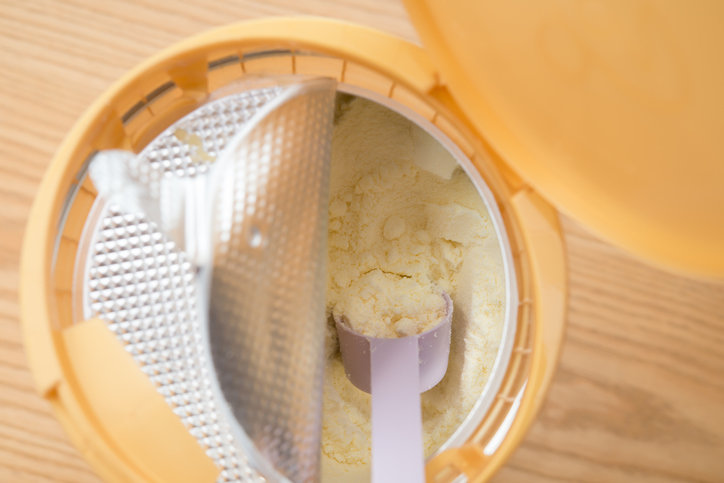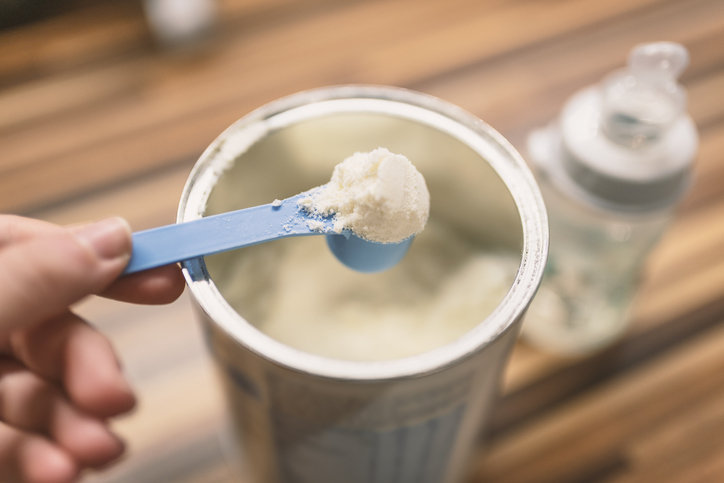
Parents of newborns being bottle fed might want to choose their formula carefully. A recent study has revealed that infant formula products are higher in carbohydrates, sugar, and lactose than breast milk. A global investigation into the sugar content of infant formula was done by the British Dental Journal and the results of their research were published on Nature.com.
More from MamásLatinas: 40 Traditional Latino dishes that are diabetic-safe
The researchers found that some kinds of formula milk have twice the amount of sugar per serving than a glass of soda. On top of that, the study also found that many formula brands don't make the nutritional information readily available on their labels.
The cross-country study aimed to investigate the labeling and contents of formula milk products.

The study's aim was to figure out the "energy, carbohydrate and sugar contents of formula milk products across eleven countries." The findings suggested that the majority of products sampled were higher in total carbohydrates, sugars, and lactose than breast milk.
There is so much sugar in soda.

A single 12-ounce can of Coca-Cola contains 9.75 teaspoons of sugar, which is equal to 39 grams of sugar. As much as people love sugar, sweets, and soft drinks like soda, they can lead to obesity, type 2 diabetes and dental disease. So imagine what that amount of sugar can do to a baby's body?
Consuming excess sugar during infancy can increase the risk of diseases.

Breast milk is the recommended source of nutrition for babies, wherever possible, especially during their first six months of life, but parents who give formula to their children aren't aware of how much sugar can be found in the alternative.
"Although it is sweet and high in energy, the sugar is mainly lactose and the content is specific to the needs of the growing infant," the study read. "Conversely, infant formula milks have a standardised make-up and contain added sugars such as corn syrup, which are added during production and are not found in breast milk. This is bad for babies because high consumption of added sugars may contribute to tooth decay, poor diet and lead to obesity in children."
There is no real regulation over the amount and type of sugar in infant formula products can use. That must change. The study recommends that manufacturers need to be encouraged to create formulations that are as close to breast milk as possible.
Parents aren't given the tools they need to be well-informed.

One of the issue that researchers found was that consumers weren't given the necessary tools to make sure they are well-informed about the products they were buying. The result of the study calls for it to mandatory for manufacturers to disclose the amount of added sugars in their products, as well as clear nutrition labels that are found on the front of their packages, so that parents can make better choices when it comes to the products their children consume.




